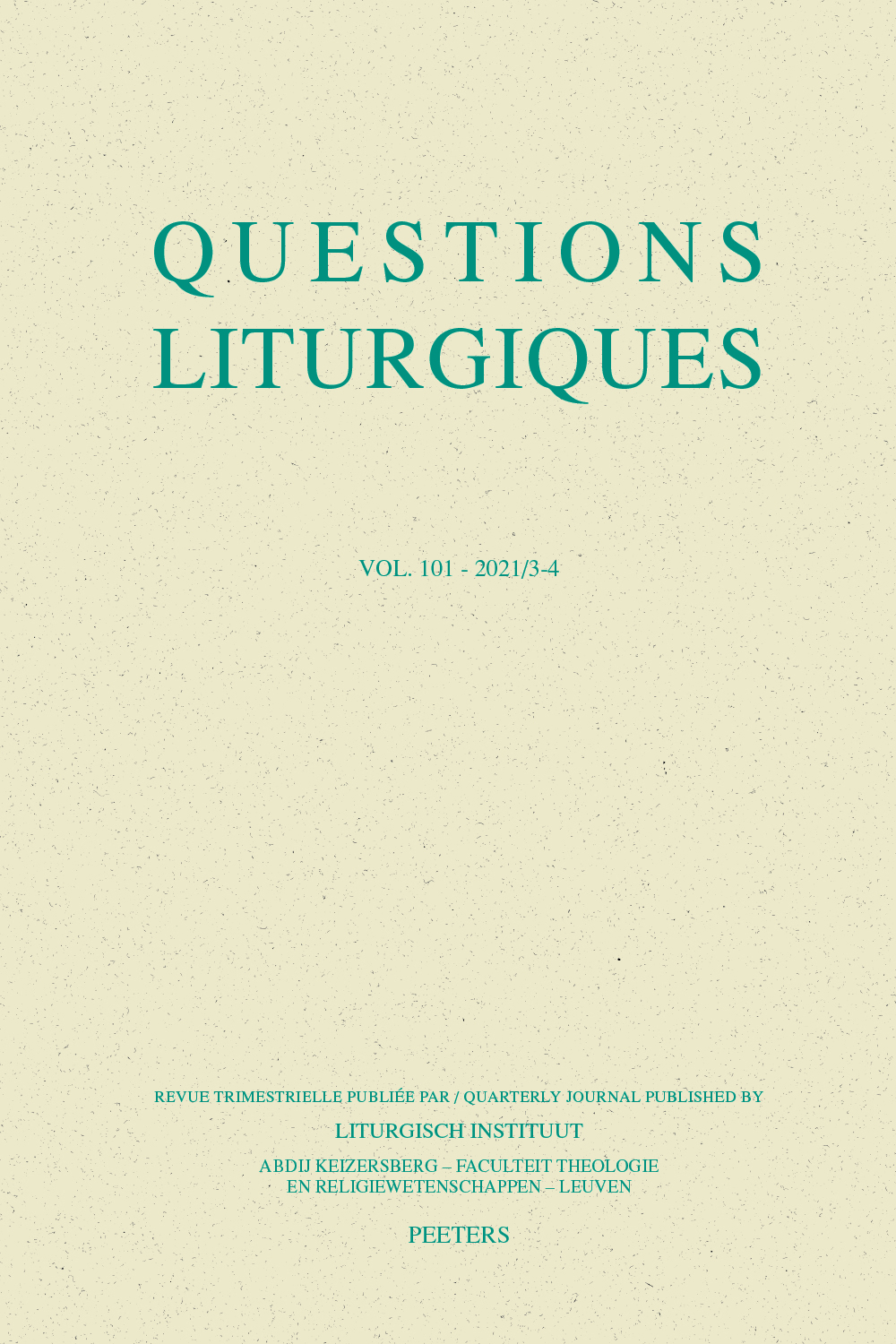 previous article in this issue previous article in this issue | next article in this issue  |

Preview first page |
Document Details : Title: Homo ludens, Music, and Ritual Subtitle: The Play/Non-Play Characters of Religious Music Author(s): KIM, Hyun-Ah Journal: Questions Liturgiques/Studies in Liturgy Volume: 94 Issue: 3-4 Date: 2013 Pages: 220-246 DOI: 10.2143/QL.94.3.3007365 Abstract : In his Homo Ludens Huizinga examines the play-form in art and argues for the tie between play and music and for the identity of play and ritual. Huizinga’s theory of play is based on Plato’s Laws (vii, 803); but his discussion of music as play has no consideration of the Platonic musical tradition that is heavily involved in the ethics of music. Huizinga tends to put all music under the umbrella concept of play, albeit in the awareness of classical discussion about whether and how far music is more than play. While I agree with Huizinga about the affinity of ritual and play, and the play character of poetry-music, I argue that Huizinga’s theory is not applicable to all types of (religious) music. Drawing upon the ancient classification of music (musica mundana; musica humana; musica instrumentalis), this essay elucidates the play/non-play characters of religious music and suggest a typology of (religious) music in terms of the ethics of music. It explains the Platonic notion of music that underlies the polemics of ethical monotheisms against playful/theatrical music featured by musical instruments, articulating their views of singing as contemplation – intensive intellectual and mental exercise associated with the moral state of human beings. Dans son Humo Ludens J. Huizinga examine l’aspect ludique dans l’art et plaide pour la liaison entre le jeu et la musique et pour l’identité du jeu et rituel. La théorie du jeu de Huizinga est basée sur les Lois de Platon (vii , 803), mais sa discussion sur la musique comme jeu ne prend pas en considération la tradition musicale platonicienne qui est solidement enracinée dans l’éthique de la musique. Huizinga s’efforce de situer toute musique sous le concept parapluie de jeu, quoique dans la connaissance de la discussion classique de savoir comment et dans quelle mesure la musique est davantage que le jeu. Alors que j’agrée avec Huizinga sur l’affinité du rituel et du jeu, et sur le caractère de jeu de la musique-poésie, je prétends que la théorie de Huizinga n’est pas applicable à tous les types de musique (religieuse). S’attirant l’ancienne classification de la musique (musica mundana; musica humana; musica instrumentalis) cet essai éclaire les caractères jeu/non-jeu de la musique religieuse et suggère une typologie de la musique (religieuse) en termes d’éthique de la musique. Il explique la notion platonicienne de la musique qui soutient les polémiques des monothéismes éthiques contre la musique plein jeu/théatrale produite par la musique instrumentale, articulant les vues du chant comme contemplation, exercice intensif intellectuel, associé à l’état moral des êtres humains. |
|


